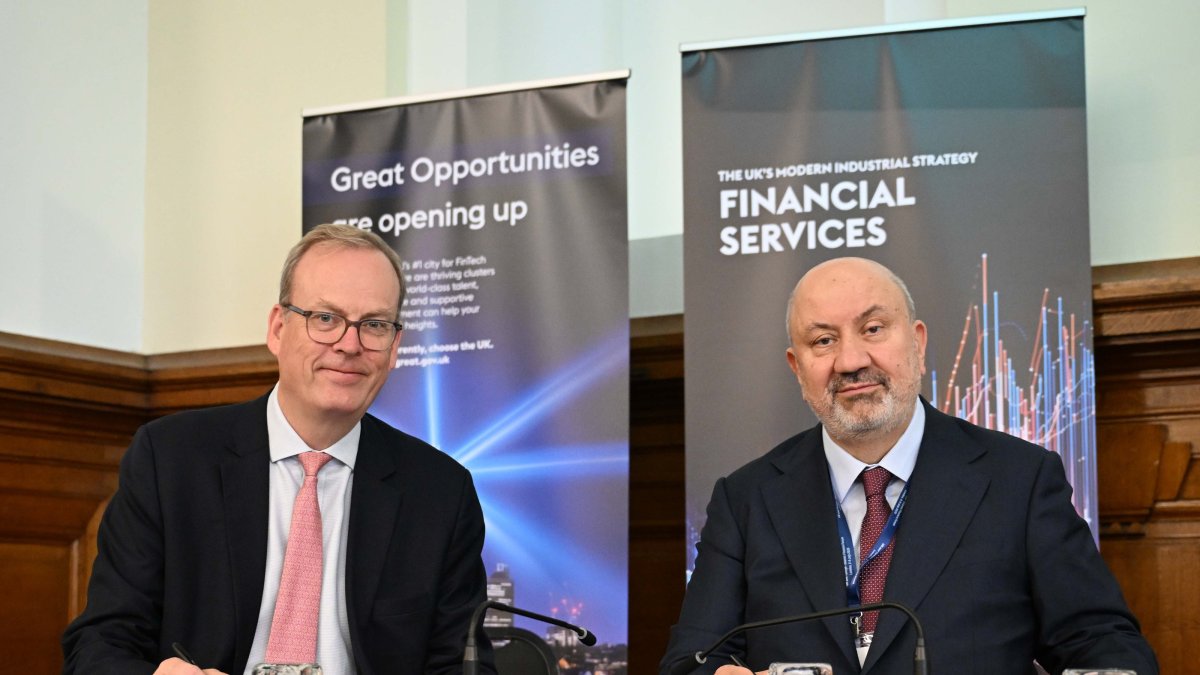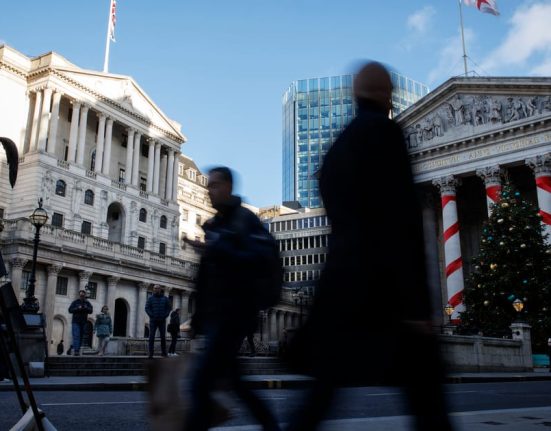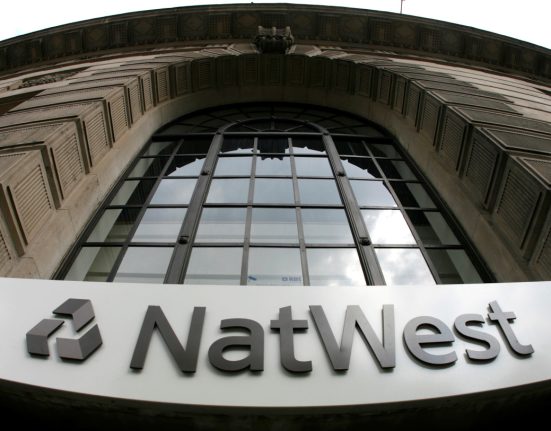In a world grappling with economic volatility and uncertainty, lingering inflation and the rising cost of capital, an alternative financial system grounded in ethics and risk-sharing is attracting renewed attention.
Islamic finance – a system that prohibits interest, discourages speculation and demands real asset backing – is seeing a global resurgence. Two countries, Türkiye and the U.K., believe they’re ideally placed to lead the charge, according to a report released on Wednesday.
Treasury and Finance Minister Mehmet Şimşek recently described Islamic finance as “structurally better equipped to address uncertainty and ambiguity,” noting that its core principles make it more stable in times of global financial stress.
“Islamic finance tends to be, relative to its conventional peers, more resilient,” Şimşek said. “It provides you with more stability and liquidity as a part of risk sharing. This is the essence in terms of your profit and loss arrangements.”
Şimşek was part of a high-level Turkish delegation visiting London last week to attend the U.K.-Türkiye Islamic Finance Forum. The forum was hosted by the U.K. Department for Business and Trade in cooperation with the Participation Banks Association of Türkiye (TKBB).
On this occasion, TKBB and the U.K. Export Finance (UKEF) signed a Memorandum of Understanding (MoU) aimed at strengthening cooperation in Islamic finance.
‘Deeper collaboration’
Speaking to Anadolu Agency (AA), Mehmet Ali Akben, chairperson of TKBB and general manager of Vakif Katılım Bank, highlighted the potential benefits of the deal for both countries.
“The share of participation finance in Türkiye’s banking sector is currently around 8%. Our initial goal is to increase this to 15%,” he said to AA last week.
Akben noted that London remains a major global financial hub and pointed out that Türkiye has developed its own financial center in Istanbul.
“We attach great importance to mutual cooperation in this context. We believe that this MoU will enable deeper collaboration between the two countries in trade and export finance, education and alignment with international standards. We also believe that Islamic finance will become more accessible to a broader audience in Türkiye as a result,” he added.
While the sector still represents a modest share of global finance – around 1% of total assets – Şimşek pointed out that Islamic finance has expanded elevenfold since the year 2000.
In Türkiye, its footprint is larger than the global average, making up 8% of banking assets and over 12% of the capital markets, he also noted.
London sees long-term role
Across the Channel, U.K. trade officials say the ethical basis of Islamic finance is appealing not just to Muslims, but to a broader group of investors seeking to align their money with their values.
“There are lots of people from around the world who are taking great interest in the values that are underlying their investments,” said Ben Aldred, deputy commissioner of Trade for Eastern Europe and Central Asia at the U.K.’s Department for Business and Trade.
“This is not just a new thing for the U.K.. This is something that we’ve been doing for at least a decade,” he told AA, according to remarks published on Wednesday.
London, one of the world’s most significant financial centers, has hosted several Turkish government Sukuk (Islamic bond) issuances.
Aldred said he hopes to see even more Turkish institutions using London as a base to tap global capital in a Shariah-compliant way.
“We’re hoping that there will be more issuances from Turkish financial institutions out of London,” he added. “It makes economic sense to do so and we’re really seeing that momentum now,” he noted.
For Islamic finance to go mainstream, however, markets need liquidity, said Hugh de Lusignan, head of financial services at the U.K. Department for Business and Trade.
“We think it’s important to create what’s called the yield curve,” he said, referring to the need for regular bond issuance that makes pricing more transparent and predictable. “That makes it easier for people to invest.”
He pointed to a recent Sukuk issuance by the Türkiye Wealth Fund (TWF) as a sign of strong international appetite.
“The fact that it was so oversubscribed proves that there’s a big international market for these types of issues, even though the circumstances might look difficult.”
TWF, the asset-backed development fund of Türkiye, marked its landmark $750 million Sukuk issuance in October 2024 during a Market Open Ceremony at the London Stock Exchange (LSE).
The Sukuk issuance, with a return rate of 6.95%, was oversubscribed by 14 times, setting a record in the history of Sukuk issuances.
Following the success, TWF executed a re-tap Sukuk issuance in January 2025, increasing the total size to $1 billion.
Türkiye’s gateway role
For the U.K., Türkiye is more than just a partner – it’s a bridge. Positioned between Europe, the Middle East and Central Asia, Ankara is seen as a strategic hub for the spread of Islamic finance.
“Türkiye is in exactly the right position,” de Lusignan said. “There’s a lot of growth in that area from countries that are interested in expanding Islamic finance opportunities … and the banks are thinking internationally.”
The global Sukuk market is on course to exceed $1 trillion in outstanding volumes in 2025, according to Fitch Ratings.
Sukuk are expected to remain a key component of the debt capital markets (DCM) across numerous Organization of Islamic Cooperation (OIC) countries and will continue to play a significant role in emerging markets (EM).
In 2024, Sukuk accounted for 12% of all EM U.S. dollar debt issuance, excluding China, underlining their increasing global relevance.
Sukuk were 25% of total dollar DCM issuance in the core markets of the Gulf Cooperation Council (GCC) countries, Malaysia, Indonesia, Türkiye and Pakistan.








